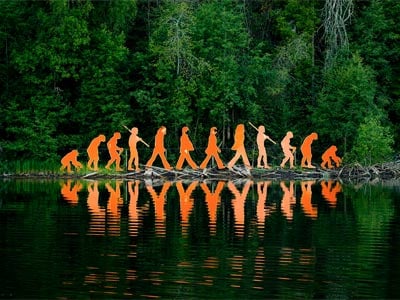The Fallacy of Human Freedom
Mini Teaser: Faith in progress and the perfectibility of human nature are at the center of Western thought. What if this faith is misplaced?
Gray calls these intellectuals “ichthyophils,” which he defines as “devoted to their species as they think it ought to be, not as it actually is or as it truly wants to be.” He elaborates: “Ichthyophils come in many varieties—the Jacobin, Bolshevik and Maoist, terrorizing humankind in order to remake it on a new model; the neo-conservative, waging perpetual war as a means to universal democracy; liberal crusaders for human rights, who are convinced that all the world longs to become as they imagine themselves to be.” He includes also “the Romantics, who believe human individuality is everywhere repressed.”
Throughout American politics, as indeed throughout Western politics, a large proportion of major controversies ultimately are battles between the ichthyophils and the Burkeans, between the sensibility of the French Revolution and the sensibility of American Revolution, between adherents of the idea of progress and those skeptical of that potent concept. John Gray has provided a major service in probing with such clarity and acuity the impulses, thinking and aims of those on the ichthyophil side of that great divide. As he sums up, “Allowing the majority of humankind to imagine they are flying fish even as they pass their lives under the waves, liberal civilization rests on a dream.”
Robert W. Merry is editor of The National Interest and author of several books on American history and foreign policy.
Image: Flickr/possan. CC BY 2.0.
Pullquote: Progress is the idea that mankind has advanced slowly but inexorably from a state of cultural backwardness, blindness and folly to ever more elevated stages of enlightenment. Gray rejects it utterly.Image: Essay Types: Book Review
Essay Types: Book Review 